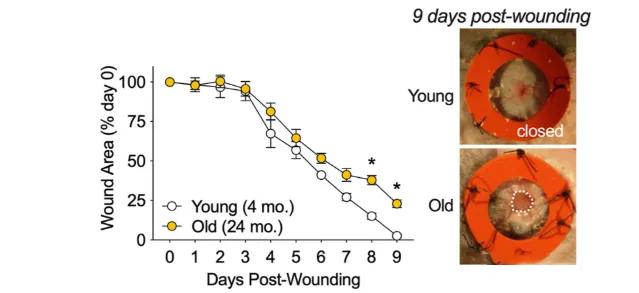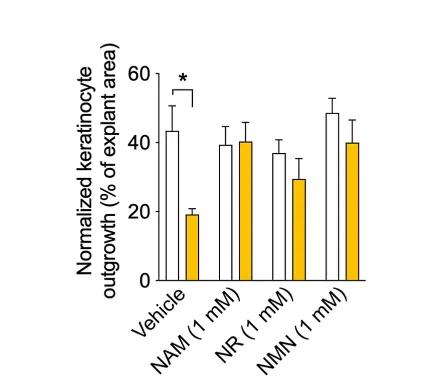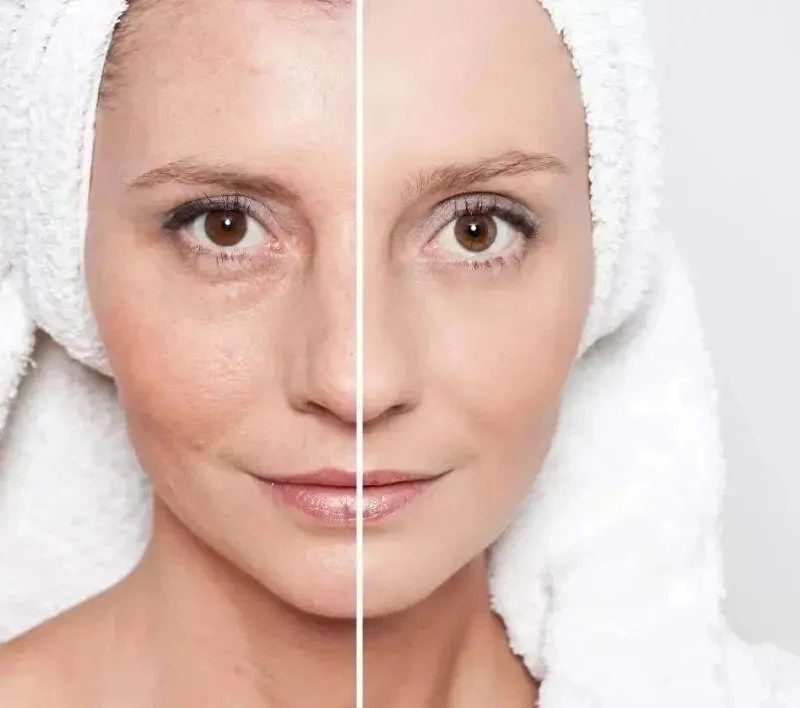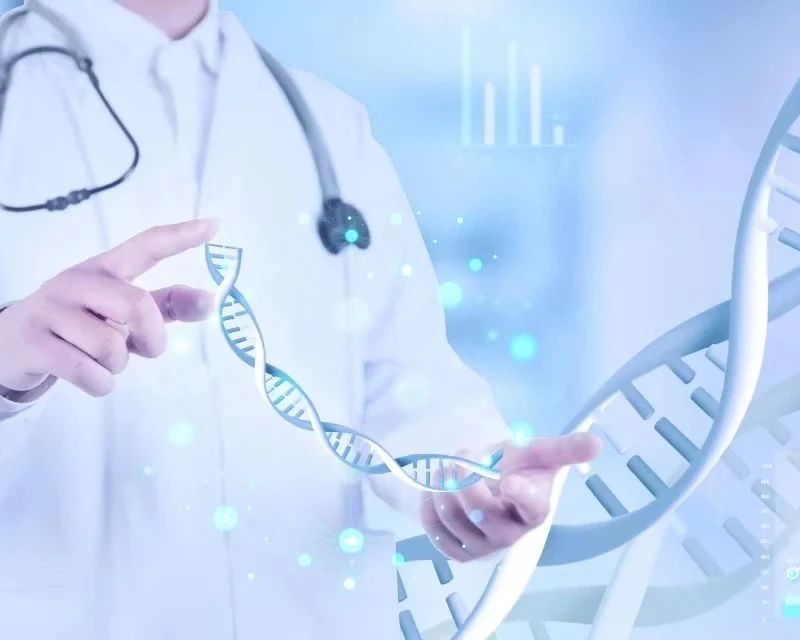The ability of skin regeneration is decreased in old age, and the wound healing is slow. Studies have found that increasing NAD+ levels enhances skin regeneration and promotes wound healing. NAD+ precursors such as NMN can restore sirtuin activity, avoid cell cycle arrest, and promote the skin regeneration process.
In daily life, we often see such a situation: young people tend to heal quickly after skin injury, while the elderly wound healing speed is slower;
Similarly, older people take longer to repair other tissues after injury than younger people, and recovery is generally less effective.
These phenomena all indicate that aging will lead to the decline of tissue regeneration function and affect the effective repair ability of tissue damage. China NMN manufacturers
Poor wound-healing ability in the elderly is a serious problem because effective wound-healing therapies are still scarce.
NMN Experimental study
Scientists from Boston University and the University of Ottawa in Canada recently found that increasing NAD+ levels may help enhance the regenerative capacity of the skin in older adults and promote more efficient wound healing.

The researchers, who published their findings in the journal Molecular Metabolism, suggest that the skin repair process is mediated via NAD+.
By observing that wound healing slowed with age in older mice, the researchers noticed lower levels of NAD+ in the skin of older mice, leading to increased cell cycle arrest and triggering changes in NAD+ dependent enzymes.
The researchers found that three different NAD+ precursors, including NMN, helped restore skin regeneration.

The researchers performed skin piercing experiments on 24-month-old old mice and 4-month-old young mice to confirm the effects of aging on wound healing.
The results showed that the wounds of the young mice fully healed after nine days,
but the wounds of the old mice did not fully recover.
The researchers put excised skin from old mice into petri dishes to assess the ability of skin regeneration and found that when skin regeneration inhibited, cell proliferation also reduced.

NAD+ plays a key role in cellular energy balance,
providing energy for enzymes key to DNA repair and cell survival, including sirtuins and PARPs.
PARPs primarily involved in DNA repair, while sirtuins regulate a variety of cellular processes, such as cell proliferation.
Decreased sirtuin activity associated with cell cycle arrest, resulting in blocked cell division and inhibited proliferation.
The researchers observed decreased NAD+ levels in the skin of older mice,
accompanied by decreased sirtuin activity, increased PARP activity, and cell cycle arrest.
After NAD+ promoted by the intake of NMN and other prerequisite substances in elderly mice,
the increase in the level of NAD+ restored the activity of sirtuin,
avoided cell cycle stagnation, and promoted the process of skin regeneration.
In SUMMARY:
NAD+ supplementation can accelerate the healing rate of skin wounds in elderly mice.
Reduced sirtuin activity in older skin appears to lead to cell cycle stagnation and reduced skin cell proliferation,
which may account for the slow rate of wound healing in older mice.
Ingestion of NMN, by providing NAD+ fuel for sirtuins,
prevents cell cycle arrest and increases skin cell proliferation, which in turn promotes skin regeneration and wound healing.




